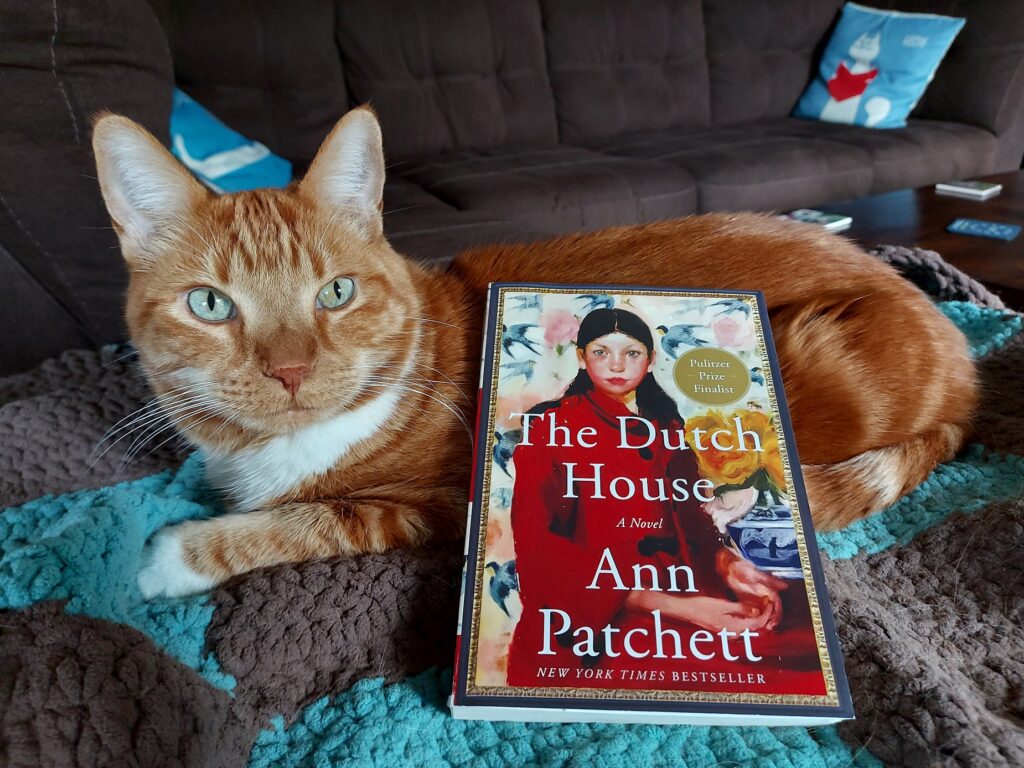The Dutch House by Ann Patchett

I love me some family drama. I am absolutely fascinated by family dynamics, and the more the dysfunctional the dynamics, the better (do not worry, I prefer to read about fictional dysfunctional families and not focus on real dysfunctional families). I should have devoured The Dutch House and enjoyed every minute of it. And I did devour it; I was absolutely engrossed by it. But did I enjoy it? It is supposed to be a heartwarming family saga about making peace with the past and learning forgiveness, but after expanding my reading horizons this year and learning more about the experiences of Black and Indigenous people, I cannot say that I really enjoyed reading The Dutch House because its message gets diluted by the reek of white privilege.
I am not at all surprised by the white privilege in this novel. After all, it is about two white siblings who grew up rich in a huge house (the Dutch House of the title). Their mother leaves them when they are very young to go to India to help the poor (and they do not learn until many years later if she is alive or dead) and then their father unexpectedly dies when the youngest sibling is still in his teens, and then they learn that their stepmother has pretty much stolen their inheritance away from them. I was expecting The Dutch House to be more Dickensian though, like the siblings, Maeve and Danny, would actually have to struggle to get by after having their riches being taken away. They don’t. I was also hoping that the characters would recognize how privileged they are and show some appreciation for this privilege. They don’t. But again, I am not at all surprised given the timeline of the novel (it spans from the 1950s to the early 1990s), just disappointed.
Ann Patchett does a fantastic job in her creation of the novel’s narrator, which is Danny, who is seven years younger than his sister Maeve. Danny is so authentic in his cluelessness about his privilege, about women, and his perpetuation of stereotypical heterosexual white masculinity that I just do not like anything about him, and it is hard for me to really appreciate a novel when I cannot find at least one thing to appreciate about the main character. Even though Maeve and Danny’s father very stupidly did not create a Will before he died, and very stupidly added his second wife as an owner to his business (thinking, very wrongly, that she would take care of his children if anything should happen to him), he was smart enough to create an educational trust for Danny and the stepmother’s own two daughters. Maeve very gleefully decides that she and Danny are going to bilk this trust for all it is worth, so that there will hardly be anything left for their stepmother’s daughters, and so she sends Danny to a private boarding school to finish up his high school years, then decides that he is going to have the longest and most expensive education that the trust will pay for, which is medical school. And Danny does not even want to become a doctor! He goes through medical school just so Maeve can have her revenge, but in the end, instead of becoming a doctor and helping people, he becomes a property owner and landlord like his dad before him, just so he can prove that he fix things like leaky faucets.
Maeve is hardly a sympathetic character either. Even though she does not have the benefit of an educational trust, at the time of their father’s death she has been to college and she is working at a job that she likes and where she is respected, so she is hardly struggling to get by. Maeve is consumed by her anger towards her stepmother and being kicked out of the home that she and Danny grew up in. Maeve and Danny spend a lot of time sitting in a car parked in front of the Dutch House, reminiscing on their childhood, and having some interesting discussions about the reliability of memories. I cannot blame Maeve for being angry and for gleefully bilking the trust. I would probably do the same thing. My problem with Maeve is that she is one of those frustrating characters that spends so much time mothering her younger brother, she does not take her own problems seriously and does not want help when she so clearly needs it.
Honestly, The Dutch House reads like a bunch of privileged white people sitting around celebrating themselves. Even the housekeepers in the Dutch House, two white sisters, are so happy and just absolutely devoted to the two children they were paid to raise. Maeve and Danny may grow out of their anger and learn forgiveness, but their lives are never that hard and so they are not as complex as they could have been. The Dutch House is a disappointing read, definitely not as interesting and complicated as Donna Tartt’s The Goldfinch, which I would recommend reading over this novel.